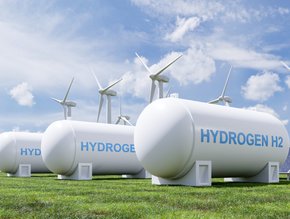The Outlook of Energy, Cleantech Investments and M&A

The proof is in the pudding that when it comes to cleantech venture capital (VC) investment, the worst post-covid year has still been better than the best pre-covid year when looking at deal value. That’s according to Datasite, a leading SaaS for the mergers and acquisitions (M&A) industry, whose CRO EMEA Merlin Piscitelli, says despite there being increasing challenges, predicts and anticipates increased M&A driven by new business models and policies.
Here, he shares his predictions.
The future of energy, cleantech and M&A
Interest rate increases, geo-political tensions and shifts in investor sentiment all played a part in keeping 2023’s energy investment and mergers and acquisitions (M&A) activity relatively subdued. However, the introduction of new business models, policies and a decline in certain finance structures are likely to spur more activity.
The global energy market has been treading divergent paths for some time. On one hand, economic headwinds and geopolitical conflict in major epicentres of global energy production, such as Eastern Europe and the Middle East, has resulted in significant energy price volatility and tempered dealmaker optimism. In fact, 2023 was an extension of some of the slowest years in energy M&A dating back to 2015.
On the other hand, consolidation, especially among oil and gas producers, was a key dealmaking trigger in 2023 due to reduced oil prices, economic pressures and increased support for achieving net zero plans. Driven by maturing business models, companies have been turning to dealmaking to strengthen their market position. Several recent deals worth a total of US$135 billion are clear examples of how large producers are working to secure lower-cost reserves. This trend is likely to continue and even trickle down to the small and mid-markets. Additionally, as there are more renewable exits expected, some investors and dealmakers are shifting their focus back to cheaper energy production.
Among all sectors, the energy and power industry is expected to be particularly bright for M&A, as both buy-side and sell-side deal kickoffs on Datasite, which annually facilitates about 14,000 new deals, were up 25% and 17% respectively year-over-year from January to October 2023. And because these are deals at their inception, rather than announced, it provides a good indication of what is to come in the next six to nine months.
This activity also reflects increased demand and policy support for the transition from fossil fuels to renewable energy sources. A resolution at COP28, the annual meeting of world leaders to discuss the global climate agenda and net-zero goals, calls for transitioning away from fossil fuels the scaling-up of carbon capture, utilisation and storage, tripling renewable energy capacity by 2030, doubling energy efficiency by 2030 and the adoption of a climate loss and damage fund for the most affected countries. Government measures to boost energy security and net zero commitments are also slated to be enacted in the UK, and are being discussed in the US and EU.
Data already shows strong signs of growing climate tech and cleantech venture capital (VC) deal activity in the US. VC deal flow activity in climate tech nearly doubled to more than US$31bn between 2019 and 2021, a sum higher than the previous nine years combined. This trend will likely continue, though activity will also reflect VCs looking at financing or exit strategies, as well as considerations around technological advancements, investor and stakeholder ESG pressures.
Of course, the cleantech and climate tech verticals are not exempt from broader market conditions, and dealmakers across the board are refining their dealmaking strategies to facilitate longer-term value creation. As with other industries, energy special purpose acquisition companies (SPACs) will continue to decline.
Companies will also be focused on substantiating their value to attract new dealmaking opportunities and reinvestment, with energy storage and grid solutions emerging as top investment areas this year. Companies that offer capabilities to effectively harness, store and distribute generated energy are expected to be better placed to compete with more traditional investments, such as energy generation and storage. The Ukraine-Russia war and concerns around non-renewable energy security, may also prompt more investment in renewable and sustainable energy storage and grid solutions.
*******************
Make sure you check out the latest edition of Energy Digital Magazine and also sign up to our global conference series - Sustainability LIVE 2024.
*******************
Energy Digital is a BizClik brand.






